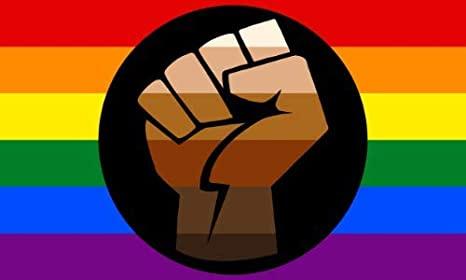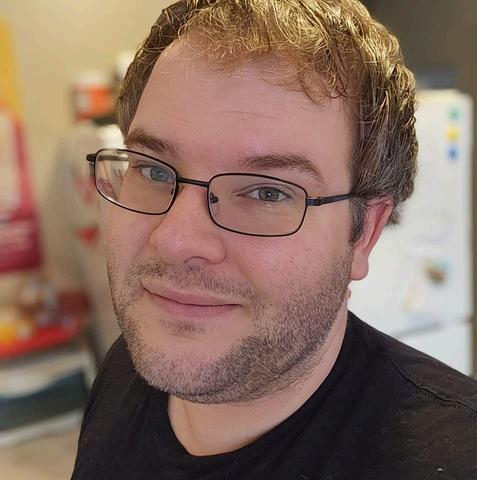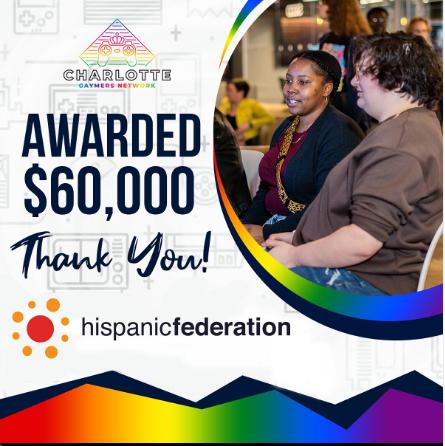













For Charlotteans, Pride festivities get a longer spread than most areas, given that our main month will coincide with the month of August. That means more time to love and enjoy celebrating ourselves and each other, whether at WorldPride in Washington D.C. or at a local event here in the Queen City.
Another important event happening this month is Juneteenth, a more recently officially recognized holiday as of June 17, 2021. Also known as Emancipation Day, the date marks when, in 1865, the news of President Lincoln’s shattering of slavery in America made its way to Galveston, Texas, the official last place the practice still happened around. This month’s Avance article talks about the date’s significance for many of our friends and loved ones, along with how having the holiday effects their mental health.
This month’s review comes from hollywoodintoto.com about Mickey 17, the follow-up film to “Parasite” from director Bong Joon-ho. While the film had its awkward moments, Robert Patterson’s multiple portrayals of Mickey Barnes showed off how deep the “Twilight” actor’s talent lies in the ways he interpreted the literally many-faced character. The movie is now available to watch on HBO Max!
All this, and more, in the June issue of the ‘Beat!
Take care, and hope to see you at an event soon!
Sincerely,
Jonny Golian
Page 1 - Opener From Charlotte Gaymers Network
Page 2 to 4 - Movie Review: Mickey 17
Page 6 to 7 - Dr. Rhett’s Corner: Topic - The Importance of Juneteenth
Back Cover - CGN’s Monthly Calendar: June ‘25





‘Mickey 17’ Can’t Stop
Lecturing Us
'Parasite' director's followup squanders solid Robert Pattinson performance(s)
By Barry Wurst hollywoodintoto.com
Bong Joon-ho’s “Mickey 17” is bonkers in ways that initially delighted me until it wore me down and overstayed its welcome
Bong’s first film since winning the Oscar for his international success “Parasite” (2019) is the kind of big-budgeted, wildly ambitious overreach that a major studio would only give someone who found monster success and wanted to cash in their chips.
While “Mickey 17” isn’t bad, it’s not a great work, either. I’m glad I saw it on the big screen and there are plenty of individual moments to savor, but sitting through the entirety of this admirable failure to get to them is not something I’ll be doing again soon
Robert Pattinson plays the title character, a citizen of Earth in 2054, who has run out of luck and stupidly signs his life and rights away by joining the space program. Mickey has agreed to being the “expendable” on a voyaging starship, a stooge who willingly puts himself in danger in the name of research and exploration


The one upside is that Mickey can be cloned after every grisly death, though what sort of life is this? When a mishap occurs and somehow allows Mickey to avoid death at the hands of an alien species, referred to as “creepers,” things get even more complicated and dangerous for him.
I was in the film’s corner for the wonderful first half, which balances pitch-black comedy, amazing visual effects, a nihilistic view of humankind and, at the center, a Pattinson performance and character eccentric and interesting enough to provide the film’s center.



Once we get to the main concept of the story (which the hilarious 2022 source novel, “Mickey7” by Edward Ashton, got around to setting up much faster), things go off the rails. By the time we get to the endless, hideous dinner scene and a belated jailbreak sequence that both go on far longer than necessary, everything on the screen feels like an endurance test.
There’s just too much here, and that goes double for the performances by Mark Ruffalo and Toni Collette as the sham religious cult leaders of the spaceship. A little of this would have gone a long way, but both actors are giving turns best suited for a “Saturday Night Live” sketch. Instead of coming across as villains I loved to hate, both actors give performances so broad that I grew embarrassed.



The intended political satire, reflection on a cult mentality and an allegory for colonization is so heavy handed, I wanted “Mickey 17” to, pretty please, stop screaming in my ear and get back to being a tragic comedy about how human beings place value on the lives of others.
All the promise of the early scenes are unmet, though far too many subplots (such as a love triangle, business with a loan shark, fractured friendships and even a literally lastminute attempt to inject horror) obscure the stuff that works.
Bong is, indeed, a visionary filmmaker and there are elements here that will stay with me. That said, the film that reminded me most from his impressive body of work isn’t the thrilling futurist humankind-is-doomed fable “Snowpiercer” (2013) or the perfect monster mash of “The Host” (2006) but Bong’s semi-misstep, the similarly over-cooked and tonally wonky “Okja” (2015).


While “Okja” is slightly better than “Mickey 17,” they favorably share a creature feature premise and unsuccessfully shoehorn an unsubtle contemporary message, and also feature a reliable actor hamming it up (though the performance Jake Gyllenhaal gives in that film, as uneasy as it is, holds up better than Ruffalo’s Razzie-worthy turn in “Mickey 17”).
Here’s a mild spoiler – Denis Villeneueve’s brilliant early shocker “Enemy” (2013) is far better at exploring the dangers of meeting one’s double, though the general details of the premise were also better portrayed in “Edge of Tomorrow” (2014) and “Source Code” (2011).
Both the spare, thoughtful “Moon” (2009) and the big, delightful “Oblivion” (2013) tower over “Mickey 17” by portraying similar ideas but managing not to overcrowd the narrative with too many supporting characters, bloated scenes that don’t work and explorations of theme that don’t require jackhammer, don’t-you-get-it messaging.
Look, a great movie just tells its story and has us talking endlessly about it after we’ve seen it, whereas a movie that force feeds us a blatant message, no matter how well intended, comes across like the director is sitting next to us, blaring a bullhorn in our ears.
There’s some of the latter in “Mickey 17,” when all I wanted was the focus to be on Pattinson’s typically risk-taking performance and intriguing character.
Considering how many endings this has (each sporting a different genre and a pleasing Pattinson haircut that suggests a reshoot) and how unpleasant much of this is, it’s no wonder that the release date wound up getting pushed back for years. Part of me admires the hutzpah of Bong, Pattinson and Warner Bros. for sticking to this cracked vision. The other part of me just wants to have fun and rewatch “Edge of Tomorrow.”
/ ����





Presented By

bySkyeWilson,LCMHC

On June 19, 1865, over two years after the Emancipation Proclamation was issued, Union soldiers finally arrived in Galveston, TX, to announce to enslaved Black people that they were free. This day, now known as Juneteenth, marks the end of legal slavery in the United States. Each year Juneteenth serves as more than a historical milestone – It is a somber reminder of delayed justice. A time of reflection. And a call to remember that freedom has always been complex – especially for those of us who live at the intersection of multiple marginalized identities.
You may be wondering why a mental health counselor is writing about Juneteenth. The fact is that the effects of slavery, racial violence, and systemic oppression don’t just live in history books- they live in bodies, families, and communities. Trauma is passed down the generations and can impact mental health in ways that are deeply felt, even when not consciously understood.
Research shows that racial trauma (stemming from historical oppression, contemporary discrimination, and chronic exposure to racialized stressors) can lead to symptoms similar to PTSD: hypervigilance, anxiety, depression, dissociation, and emotional exhaustion. And for many in the Black community, especially those who also identify as LGBTQIA+, access to affirming care has historically been limited.
This is why mental health care must be rooted in understanding, empathy, and cultural responsiveness; acknowledging not only the present-day challenges individuals face, but also the legacies that shape those challenges.



Juneteenth is a time to remember. But it is also a time to reclaim. We remember that freedom was not freely given, it was fought for. We remember that healing is not linear, it is multilayered, generational, ongoing, and looks different for everyone.
We remember that celebration and grief can coexist, and both are valid. And in therapy, we help clients reclaim what has often been denied: rest, voice, safety, joy, and the space to be fully human. The therapy room can be one of the few places where we’re allowed to stop pretending we’re okay. Where we get to name our grief, our rage, our exhaustion and not be asked to shrink it. Mental health isn’t separate from liberation, it is liberation.
For all of us, regardless of background, Juneteenth offers an opportunity to reflect on the past while committing to equity, inclusion, and collective healing in the present. Here are a few ways to honor Juneteenth meaningfully:
Learn the history. Educate yourself about Juneteenth and the ongoing impacts of racial injustice on mental health.
Acknowledge racial trauma. Recognize the emotional toll systemic oppression takes on individuals and communities, and the importance of culturally responsive care.
Support mental health equity. Advocate for and invest in mental health resources that serve marginalized populations with respect and integrity. Hold space. Whether in your family, workplace, or community, create room for authentic conversations about race, history, identity, and healing.
Celebrate joy. Joy is an act of resistance. Black joy, in all its forms, is a powerful expression of resilience and liberation.
At its heart, Juneteenth reminds us that healing takes time and that justice delayed is not justice denied when we keep working toward liberation in all its forms, including mental and emotional wellness.

For More Information, consultation, and to make an appointment for you or your partner, please visit:


T H A N K Y O U
T o O u r S p o n s o r s





June 6th CGN Presents: Gaymer Gathering @ Tabbris - 7pm



June 14thBoard Game Bash @ Tabbris - 7pm
June 27thCGN’s Sapphic Social @ Great Wagon Road Distillery - 7pm

